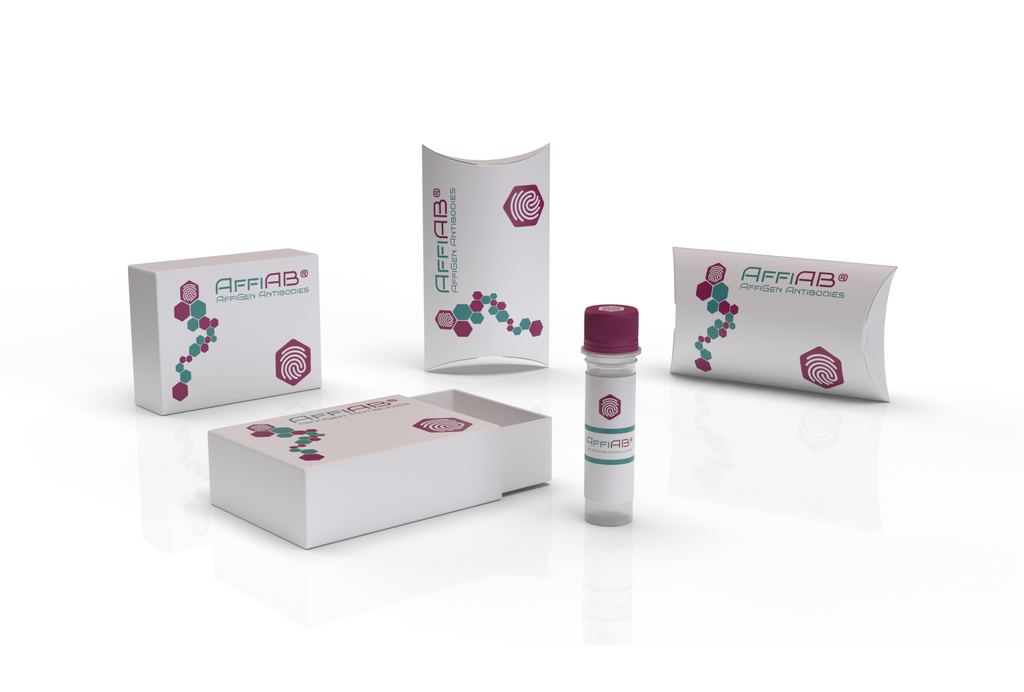AffiAB® Anti-Integrin beta 1 Antibody
Integrins are transmembrane receptors that mediate the attachment between a cell and its surroundings, such as other cells or the extracellular matrix (ECM) . Integrins are obligate heterodimers containing two distinct chains, called the α (alpha) and β (beta) subunits. The molecular mass of the integrin subunits can vary from 90?kDa to 160?kDa. Beta subunits have four cysteine-rich repeated sequences. Both α and β subunits bind several divalent cations. Integrins have two main functions: Attachment of the cell to the ECM and signal transduction from the ECM to the cell. However, they are also involved in a wide range of other biological activities, including immune patrolling, cell migration, and binding to cells by certain viruses, such as adenovirus, echovirus, hantavirus, and foot and mouth disease viruses. Research studies have implicated β1 integrin in various activities including embryonic development, blood vessel, skin, bone, and muscle formation, as well as tumor metastasis and angiogenesis.
Antibody type
Rabbit polyclonal Antibody
Uniprot ID
SwissProt: P05556 Human
Recombinant
NO
Conjugation
Non-conjugated
Host
Rabbit
Isotype
IgG
Clone
N/A
KO/KD
N/A
Species reactivity
Human, Mouse
Tested applications
WB, IHC-P, FC
Predicted species reactivity
N/A
Immunogen
Synthetic peptide within residues of Integrin beta-1 aa 749-798 / 798.
Storage
Store at +4°C after thawing. Aliquot store at -20°C or -80°C. Avoid repeated freeze / thaw cycles.
Form
Liquid
Storage buffer
1*PBS (pH7.4) , 0.2% BSA, 40% Glycerol. Preservative: 0.05% Sodium Azide.
Concentration
1 mg/mL.
Purity
Immunogen affinity purified.
Signal pathway
Immunology & Inflammation, Neuroscience, PI3K-AKT
Recommended dilutions
WB: 1:500-1:1, 000
; FC: 1:100
; IHC-P: 1:200
Molecular Weight
100 kDa
Subcellular location
Cell membrane, cytoplasm
Positive control
Human liver tissue, human kidney tissue, A172, NIH/3T3, Hela, human colonic carcinoma tissue, human liver cancer tissue, mouse kidney tissue, HepG2.
